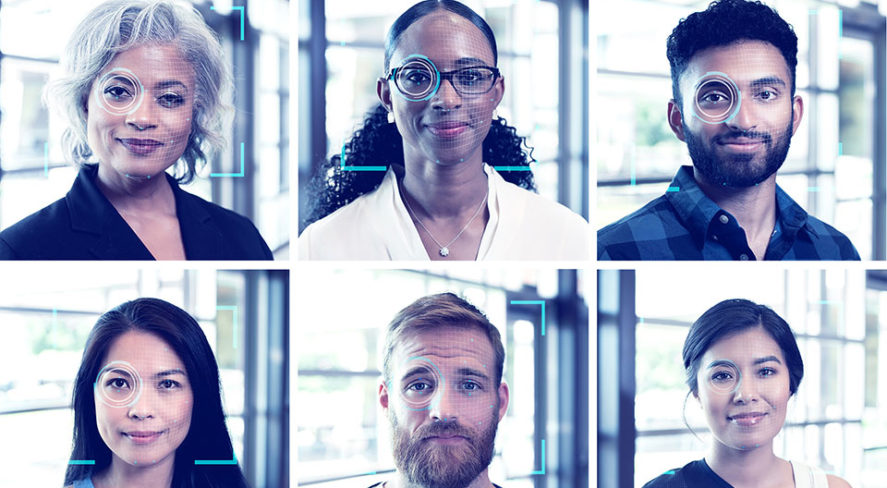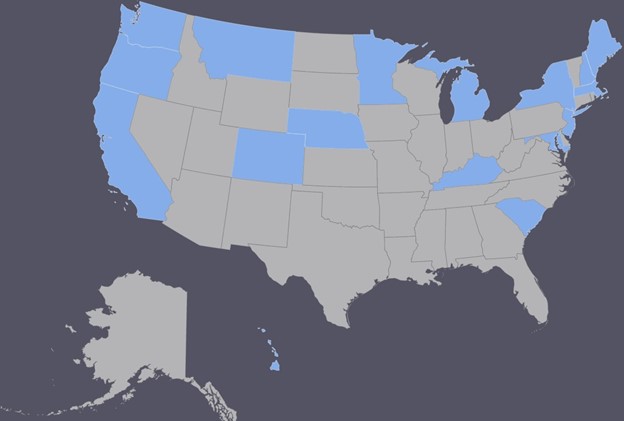Most State Legislatures Have Rejected Bans and Severe Restrictions on Facial Recognition

Facial recognition technology and related legislation have been a hot topic in the media and in policy discussions around the country. The Security Industry Association (SIA) is advocating nationwide for policies ensuring responsible use and sensible privacy protections, while urging rejection of blanket bans or unbalanced restrictions of these technologies that ignore the clear benefits of many applications and ultimately harm rather than protect Americans.
With most 2021 legislative sessions concluded or winding down for the year, proposals to ban or heavily restrict the technology have had very limited overall success despite recent headlines. It turns out that such bills failed to advance or were rejected by legislatures in no fewer than 17 states during the 2020 and 2021 sessions: California, Colorado, Hawaii, Kentucky, Maine, Maryland, Massachusetts, Michigan, Minnesota, Montana, Nebraska, New Hampshire, New Jersey, New York, Oregon, South Carolina and Washington.
Nearly all the measures would have banned or severely limited use of facial recognition by state and local government entities, without restricting private-sector use. Legislators and witnesses cited concerns about a range of consequences to public safety and various beneficial applications resulting from broad bans and restrictions, versus more targeted policies that could address concerns about the technology without unnecessarily limiting its benefits.

For example, voting unanimously to reject such a measure in May, a Senate Committee in New Hampshire cited concerns about potential impact on “counties and municipalities” and “negative impact on the ability of law enforcement to conduct investigations into, and prosecute cases against, child sex offenders and human traffickers.” In February, the city of Honolulu expressed concerns that a bill introduced in Hawaii would limit the ability of local law enforcement to access databases managed by the federal government and other states that are routinely used to assist in criminal investigations. In May, the Colorado House Committee on Business Affairs and Labor voted 12-0 to reject a measure banning public sector use of facial recognition technology, following testimony from the Colorado Department of Labor, the Colorado Department of Justice and the Colorado Sheriffs and Chiefs of Police, citing the impact to public safety, as well as the importance of identity verification applications to detect fraud in state programs. The Montana House of Representatives voted to reject a measure that would prohibit or limit many public sector applications, following similar concerns raised by the Montana Department of Justice and other stakeholders, including the impact to existing safety and security applications in correctional facilities.
Where statewide legislation has succeeded, it is limited to measures solely or primarily targeting law enforcement applications. Vermont and Virginia are the only states passing outright bans applicable to law enforcement use. Massachusetts established conditions applicable only to law enforcement, through its police reform measure. While a broad public sector ban was initially considered in Maine, the legislature passed an amended measure in June that allows for law enforcement use under narrow conditions.
In March, Utah enacted the nation’s most comprehensive and precise policy safeguards for government applications. The measure, supported both by the Utah Department of Public Safety as well as the American Civil Liberties Union, establishes requirements for public-sector and law enforcement use, including conditions for access to identity records held by the state, and transparency requirements for new public sector applications of facial recognition technology. Additionally, Washington’s 2020 law establishing conditions for public sector applications of facial recognition went into effect on July 1, 2021.
Statewide bans on law enforcement use of facial recognition technology, though limited to two states so far, are already having unintended impact. The new Virginia law, which went into effect July 1, will eliminate investigative tools available to law enforcement throughout the Washington, D.C., region because the technology is hosted in northern Virginia. Available since 2017 and used in over 14,000 instances, among other successes, the program is credited with helping to exonerate an innocent man accused of a violent crime in Virginia, identify a suicidal veteran for assistance, take down an organized crime ring in Maryland and identify a man that assaulted a police officer in D.C. last year.
Additionally, outright bans do not allow for use of technology tools several organizations have made available to law enforcement to assist with child sexual exploitation and human trafficking investigations. This extends even to tools for analysis of digital evidence in such cases and is why the legislature in Vermont passed a bill in May – just a few months later – to exempt such software from the ban.
At the municipal level, the number of localities considering broad bans on facial recognition has been limited in 2021 to just three. Minneapolis and King County, Washington, passed bans on government use, while the Baltimore City Council recently approved the most expansive ban so far that also restricts personal and business use, joining Portland, Oregon, as one of the only two local jurisdictions out of 18 moving to restrict private-sector applications in addition to banning local government use. Notably for the security industry, among several application-specific carveouts included in these measures, the ordinances in Minneapolis and Baltimore will exclude use of facial recognition technology within access control and security systems from the prohibition.
The most recent and comprehensive public opinion research on facial recognition shows that 70% of Americans are comfortable with use of the technology to improve security at their workplace, and 6 in 10 are favorable toward the technology generally. Additional SIA resources on facial recognition technology are available here.
